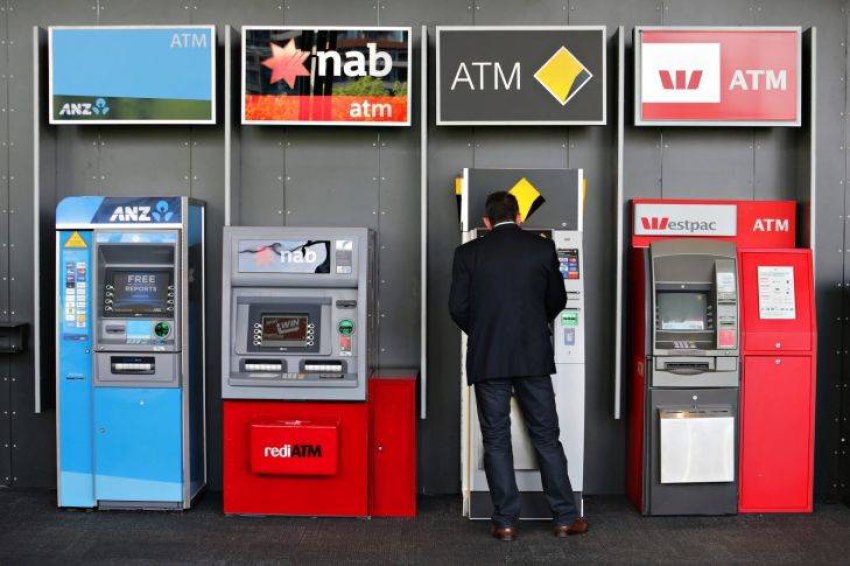
The Big Four banks have abolished fees on “foreign” automatic teller machines (ATM) withdrawals as part of a public relations ploy to head off a royal commission into their financial scandals.
The Commonwealth Bank announced on September 24 it was scrapping ATM fees on withdrawals by customers of other banks. This was immediately followed by ANZ, the National Australia Bank and Westpac.
The speed with which the other banks moved creates the suspicion of collusion by the bank cartel. “No one should be hoodwinked into believing that the move … is all about putting the customer first”, said the ABC’s Peter Ryan on September 25.
Bank customers already pay about $4.4 billion in various fees. While the fees on ATM withdrawals cost around $500 million a year, the rise of tap-and-go purchases and EFTPOS transactions means that withdrawals from ATMs have been falling.
The Reserve Bank said last year Australians made more than 250 million ATM withdrawals from banks other than their own. The average withdrawal fee is about $2, but it can cost as much as $11 to use a “foreign” ATM at a bar or casino. Overseas transactions can cost up to $20.
The banks only directly own about 40% of ATMs so the move to scrap fees will not, in practice, end all ATM withdrawal fees.
Greens leader Richard di Natale said: “The reality is that as long as half of the ATMs in this country are owned privately, we’re going to have a problem with extortionately high withdrawal fees.”
Labor’s shadow minister for small business and financial services Katy Gallagher has restated the call for a royal commission. “We are already seeing the pressure of it, by seeing the ATM fees removed. Imagine how we could get better banking for all Australians if we had a banking royal commission.”
The big banks are taking other steps to unload other embarrassing baggage that a full royal commission into banking and financial services could reveal.
The CBA announced on September 21 it was selling its scandal-ridden insurance arm Comminsure to the Hong Kong-based insurance giant IAI for $3.8 billion.
The federal government has introduced a Banking Executive Accountability Regime (BEAR) which requires senior banking executives to become “accountable persons”.
What this means exactly remains vague, but the CEOs of the big banks will now have up to 40% of their total pay deferred for four years. If they violate their new charter they will lose part or all of this.
This will not cause bank executives to change their lifestyle, however. Last year, CBA CEO Ian Narev raked in $12.3 million in total pay.
Consumer advocate CHOICE and the Consumer Action Law Centre say the new rules will not assist ordinary bank customers. In a joint submission to the government, the groups point out that the rules only apply to prudential matters, relating to the financial integrity of the banking system and not to consumer issues.
The BEAR is aimed at defending the privatised banking system: it does not protect consumers from bad financial advice, interest rate rip-offs and excessive fees and charges.
A comprehensive royal commission into the banking and financial sector, with full powers to enforce testimony and information from bank CEOs and managements, would go a long way towards exposing the crimes and profit-gouging of the big banks.
Like the article? Subscribe to Green Left now! You can also like us on Facebook and follow us on Twitter.